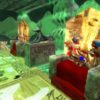Shall we discuss Heka? I have made reference to Maat in previous classes, but in fact ancient Egyptian civilization had no word for religion. Maat was more akin to the Chinese concept of Tao than an actual codified religion.
Maat forms the backdrop for the practice of Heka. The opposite of Maat is called Isfet, the Egyptian word for chaos or disorder.
So Heka is magic? Heka is Egypt’s tradition of magic, and likely did influence the magi, as well as being influenced by them.
So Heka is order and Isfet is disorder? Actually, Maat is order, Isfet is disorder. Heka is activating or awakening the Ka. Ka is personality, sort of like karma. It is the mold of the spirit. The shape ones spirit takes.
The practice of Heka comes from the creation model layed out in Egyptian tradition. The gods in Egyptian tradition are not necessarily any more holy than humans or anything like that. They are older and wiser and more mature, more powerful, but in the Egyptian world everything and everyone is more or less equal. The only thing diverting from that being the measure of Isfet clouding your Ka.
So if you visualize a mandala with the normal world as the center and the Egyptian heavens on the circumference, each figure in the mandala would all have one thing in common. They are all Ka. Ka as a noun, not as an identity. The role of the gods in the Egyptian world view is preservation of Maat, and application of Isfet on a case by case basis. Mostly, Isfet was to be kept to a minimum. If Maat is the ancient Egyptian creed, then Heka is the ancient Egyptian ritual.
A little chaos can add to beauty. Indeed, and Maat is destroyed with a total absence of Isfet. It arose from the chaos so has chaos for its essence or substance if not being governed by that. That’s what sets ones Ka apart from the general mass of spiritual energy, the potential for self-awareness of pseudo-autonomy.
So Heka is the body or insight and ritual derived from observation of Maat that leads to greater awakening of one’s personal Ka. For those possessed of a more awakened Ka, they gain more ability to interact with and influence the gods. But in order to do that they have to walk in their shoes so to speak, thus the origin of the Egyptian mystery rites. By understanding the ways of Anubis through ritual re-enactment, you come into closer contact with, and gain more influence over, Anubis.
Heka would be seen as a left hand path, because of its views of the self and divinity. They would view the effort to abandon or eliminate the self as unwise, even misguided, and their attitudes toward the gods were reverent but not worshipful in the popular sense used today.
Your thoughts are welcome. Be well friends.
Travis Saunders
Dragon Intuitive
~science,mysticism,spirituality~



Leave a Reply